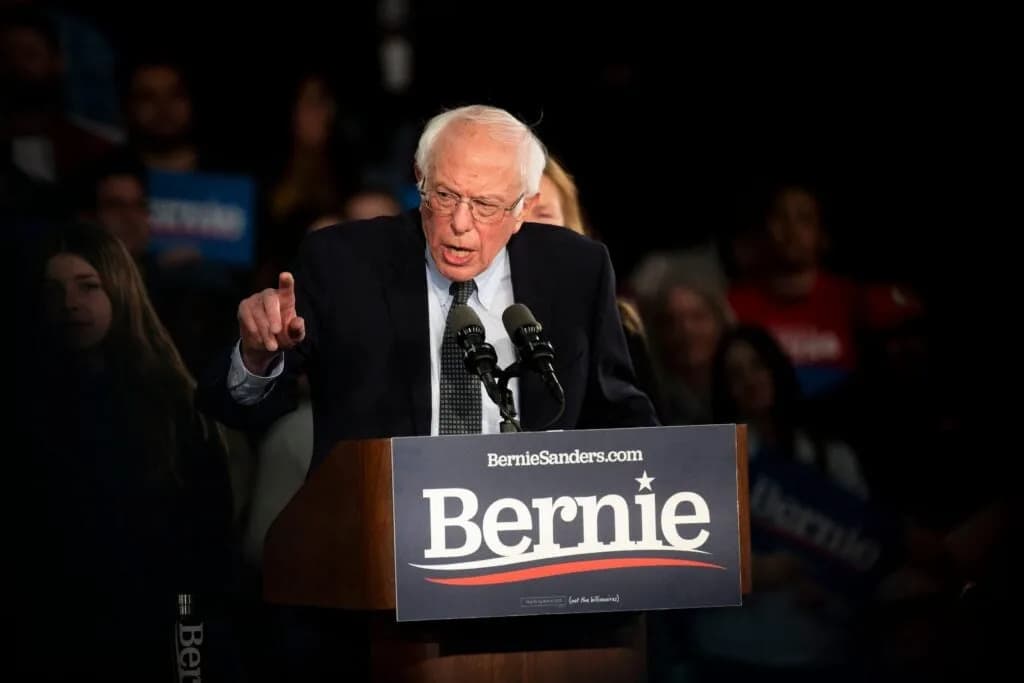Geoffrey Hinton warned CEOs that they may be overlooking a key risk of AI-driven job losses: mass unemployment would reduce consumer demand and could trigger significant social disruption. Speaking at Georgetown with Senator Bernie Sanders, Hinton — a Turing Award–winning machine learning pioneer — said AI is improving rapidly and will likely destroy more jobs than it creates. He noted new roles such as prompt engineers will emerge but will not offset widespread displacement, and students at the event expressed major concern about their future prospects.
Hinton Warns CEOs: If AI Eliminates Jobs, Who Will Buy the Products?
Geoffrey Hinton, a Turing Award–winning pioneer in machine learning, warned executives that many have not fully reckoned with a simple but profound economic consequence of widespread AI-driven unemployment: if workers lose income, consumer demand will shrink — and there will be fewer people to buy products and services.
Speaking with Senator Bernie Sanders at Georgetown University during a conversation about “the promise and the peril” of artificial intelligence, Hinton urged business leaders to consider the broader social fallout of rapid automation. Sanders opened the discussion by asking whether multibillionaires and tech leaders, including Elon Musk and Larry Ellison, have taken the effects on working people into account when investing heavily in AI and robotics.
“They should be, but I don't think they are,” Hinton said. “Many of them haven't absorbed the simple fact that if workers don't get paid, there's nobody to buy their products, and they haven't thought through the massive social disruption we'll get if we get very high unemployment.”
Sanders pointed to prominent warnings from industry figures — from Bill Gates' suggestion that many human roles could become unnecessary, to Dario Amodei of Anthropic who has said AI could eliminate a large share of entry-level white-collar jobs. Hinton told the audience he considers those forecasts plausible and cautioned that although current AI systems still fail at many tasks, the technology is in an early stage and improving quickly.
Hinton does not expect AI to create as many new jobs as it displaces. Some roles — for example, prompt engineers who optimize inputs for chatbots — will emerge, but he said they are unlikely to offset large-scale losses across sectors.
Other tech leaders have made similar observations. Elon Musk said desk jobs will be replaced at an accelerated pace and suggested that, in a benign scenario, society might shift toward universal high income funded by automation gains; Sam Altman has also spoken in favor of using AI-generated wealth to support broad social safety nets. Executives at major companies have already signaled workforce changes: Amazon's CEO warned AI could reshape white-collar staffing and the company later reduced corporate headcount; several firms have asked hiring teams to demonstrate that roles cannot be performed by AI before adding new positions.
Students at the Georgetown event appeared deeply concerned about the implications for their careers. When asked whether AI would help or harm their future prospects, far more attendees raised their hands to indicate harm.
The exchange underscores a growing policy and leadership challenge: how to manage the economic transition so productivity gains from AI do not produce widespread hardship. Hinton’s message to CEOs was direct — consider demand, wages and social stability now, rather than waiting until disruption becomes a crisis.
Help us improve.


































